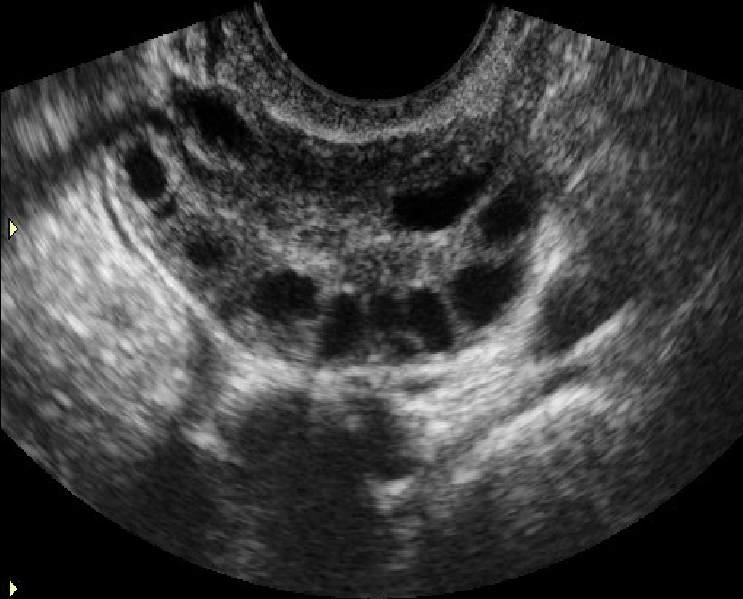
“I can’t lose weight, my face is full of acne and thick hair, and my periods are very irregular. What is going on with my body?”
These are some of the most common signs of a very common hormonal condition called polycystic ovarian syndrome or (PCOS). 10-15% of women have PCOS, with associated increase in ovarian male hormone production resulting in male pattern hair growth, acne, irregular ovulation and menstrual cycles, and difficulty in processing sugars and fat resulting in weight gain. This common condition can be recognized in women as early as teen years and lasts during the reproductive years.
The three criteria for this diagnosis are irregular menstruations, ovaries with cystic changes on ultrasound, and increased male hormones in blood. If your periods are all over the place, have thick facial and body hairs, losing scalp hair, have difficult to treat acne, and have difficulty losing weight you may have Polycystic Ovarian Syndrome.
RELATED: How Hormone Imbalance Can Affect Fertility
PCOS also results in fertility problems. Since egg production in the ovaries is very sensitive to an abnormal hormonal environment the quality and the number of eggs a women can produce suffers and makes pregnancy more difficult in women with PCOS.
PCOS if left untreated is associated with increased risk of breast and uterine cancers. Also Polycystic Ovarian Syndrome may lead to a condition called metabolic syndrome where a person’s metabolism is disrupted. This results in an increase in blood pressure and blood sugar, excess body fat around the waist, and abnormal cholesterol or triglyceride levels. This then increases your risk of heart disease, stroke and type 2 diabetes.
Evaluation in the office is simple requiring a good history, blood test, and an ultrasound looking at the ovaries.
RELATED: Ovarian Cysts
I have found a holistic approach to Polycystic Ovarian Syndrome to be very successful. I place my patients on a special PCOS diet, and exercise, and also emphasis mental relaxation and stress reduction. Several treatment options are useful in balancing a woman’s hormones and I like to individualize based on the severity of the condition and each patient’s goals.
The key to successful treatment is early recognition. Let us know of any questions or for a consultation appointment please call our office.
View this post on Instagram